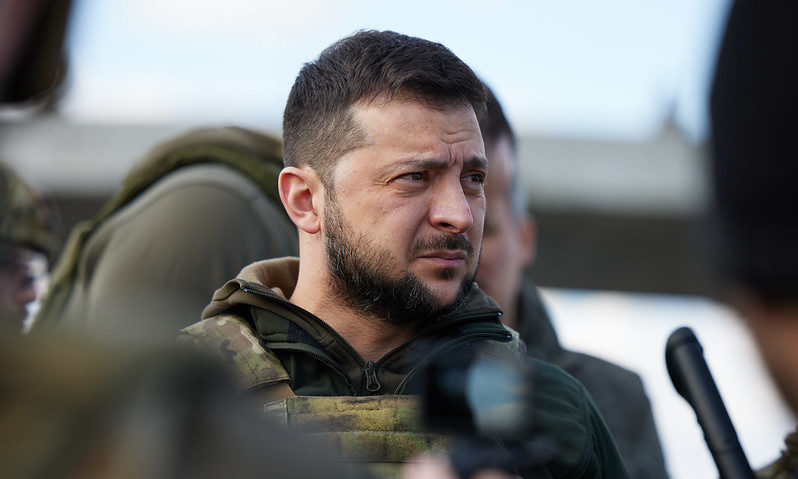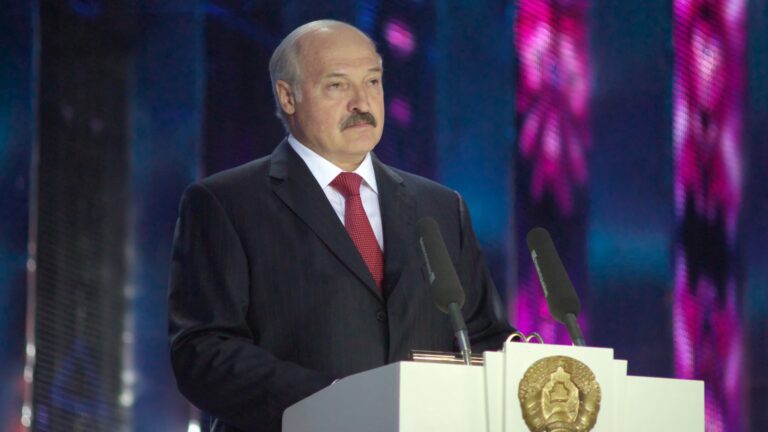
Faced with China’s “pro-Russian neutrality,” Ukraine is starting to rethink its relationship with Beijing.
In August 2022, the President of Ukraine Volodymyr Zelensky addressed the Chinese leader Xi Jinping through the Hong Kong media South China Morning Post, saying that Ukraine is seeking an opportunity to speak “directly” with China about its ongoing war with Russia. In addition, Zelensky called on China to use its outsize political and economic influence over Russia to bring the fighting to a stop.
“It’s a very powerful state. It’s a powerful economy… So (it) can politically, economically influence Russia. And China is [also a] permanent member of the UN Security Council,” he stated.
In April, the Minister of Foreign Affairs of Ukraine, Dmytro Kuleba, made a similar request to China to call on Russia to cease fire in his interview with Xinhua. In addition, he invited China to become one of the guarantors of Ukraine’s security, which “is a sign of Ukraine’s respect and trust in China.”
The rhetoric of the Ukrainian leadership suggests that Kyiv still hopes for China to assume a responsible role and help in stopping the Russian invasion, taking into account the status of the strategic partnership between Ukraine and China. However, these hopes are diminishing, and it now seems clear that Ukraine will need to radically reshape the Chinese vector of its foreign policy.
Pro-Russian Neutrality – a View from Kyiv
After the outbreak of a full-scale war, China adopted a position that is often called “tacit consent,” “pro-Russian neutrality,” or, as is prevalent in Russian expert circles, a “Russia-friendly neutrality.” While China declares that it supports the sovereignty and territorial integrity of Ukraine, it never criticizes Russia for its invasion and war crimes, instead placing the blame for the “Ukrainian crisis” on the US and NATO, which allegedly provoked the conflict with their irresponsible policies.
The fact that China has no interest to assist Ukraine in the crisis has already been demonstrated by many examples. Since the start of the war, China has almost always voted against Ukrainian resolutions in the UN and constantly criticizes the sanctions imposed on Russia, saying that they harm the global economy. What is more, Beijing intensively develops political, economic, and military-technical relations with Russia, even while opposing the provision of arms to Ukraine by the West, saying that it does not solve the conflict, but only “adds fuel to the fire.” On the information front, China spreads misinformation, for example, about the activities of the so-called 20 American biolaboratories in Ukraine (which supposedly develop biological weapons) and even about the revival of Nazism in Ukraine.
In addition, China provides full diplomatic support to Russia, claiming that its “legitimate security concerns” should be respected and argues that Ukraine should not join NATO and should instead become a “bridge between the West and the East.” In effect, China denies Ukraine the right to have an independent choice of development and delegates the country to the role of a buffer state, a gray zone between the West and Russia, where Moscow’s influence dominates.
Likewise, in the Chinese media and expert discourse, the very existence of the Ukrainian nation and state, its right to self-defense, and independent development are downplayed. Instead, Ukraine is portrayed in the Chinese media as an object devoid of subjectivity, a zone of influence of Russia temporarily under the control of the West.
Repeated attempts to involve China in the resolution of the conflict have come to naught. China has periodically declared its constructive role in resolving the conflict, and that it “will not sit idly by” in the event of an escalation, but Beijing’s words have not translated into action. The vast destruction of Ukrainian cities and Russia’s war crimes that many consider genocide have not affected the Chinese position either. In fact, China not only has not abandoned its “pro-Russian neutrality,” but has continued to spread pro-Russian narratives in domestic and international information space.
Changing Perception of China
China’s indifference to Ukraine’s fate has damaged its image in the Ukrainian expert environment and the media. The majority of Ukrainian experts perceive China’s position as directly or indirectly harming Ukrainian national interests, and have no illusions about the possibility of attracting China to Ukraine’s side. Ukrainian media increasingly describe China’s diplomatic and economic assistance to Russia and try to understand what the deepening of the partnership with “no limits” between the countries will lead to.
Ukrainian society is also gradually changing its attitude towards China. According to the results of a sociological survey conducted in March 2022, 17 percent of Ukrainians saw China as a hostile country, ranking third after Russia and Belarus. Still, 63 percent of respondents considered China a neutral actor and 15 percent saw China as a friendly country to Ukraine. Yet, even if the perception of China as a hostile actor might seem low considering its position on the Russian aggression, it has almost doubled when compared to April 2021 poll, when it stood at 9 percent.
So far, the Ukrainian authorities have been more inert in changing their approach to China. In the rhetoric of President Volodymyr Zelensky, the head of the President’s office Andriy Yermak, and the head of the Ministry of Foreign Affairs Dmytro Kuleba, China’s position is still defined as neutrality. When during the Shangri-La Dialogue, Zelensky was asked by a journalist about his advice for Taiwan “which is facing a similar (although not yet violent) campaign of economic and military coercion from China” Ukrainian president replied that “certain political leaders who are not content with the present level of their ambitions, keep growing their appetites, their ambitions,” without directly naming China. It was only in August that Foreign Minister Kuleba carefully admitted that China was helping Russia at the level of narratives.
Lingering Hopes
The careful approach by Ukrainian authorities most likely stems from an effort not to antagonize China, and avoid gaining another powerful enemy besides Russia. Yet, such an approach might also betray a simple lack of understanding of the current geopolitical situation and China’s goals, aimed at achieving a world power status and winning the global competition with the West. In this respect, the role of Russia is extremely important for China, and it is thus unlikely to support Ukraine in any way.
Finally, it cannot be ruled out that there are people in the Ukrainian government who sympathize with China and still believe that Beijing can become a driver of economic growth and a security guarantor for Ukraine after the war ends. A positive view of China, where it was considered exclusively an opportunity, has long prevailed in Ukraine’s expert and political circles. It is likely that some people in the Ukrainian government continue to think the same way.
At the same time, the critical attitude towards China in the expert circles may eventually affect the change of perception of the Ukrainian leadership as well. The attempts by Kuleba and Zelensky to reach out to the Chinese leadership through the media indicate that the Ukrainian-Chinese strategic partnership has failed. Despite the rich history of relations and close economic and defense cooperation, it is currently not even possible to arrange a simple phone call between the two countries’ leaders. Ukraine’s Embassy in Beijing has likewise failed to strengthen Ukraine’s perspective in the Chinese media and public debate.
In a broader perspective, Ukraine’s NATO aspirations are also likely to influence Kyiv’s view of China. The NATO “Strategic Concept” approved in Madrid this year defines China as a challenge, listing the specific actions of China that pose a threat to the Alliance. Ukraine, as a state aspiring to NATO membership, is expected to share the values and approaches of the Alliance, and to ultimately give up its strategic partnership with China.
Some signs that the Kyiv leadership is gradually reconsidering its relationship with Beijing are already evident. In August, Oleksandr Merezhko, Head of the Committee on Foreign Policy of the Verkhovna Rada from the presidential party Servant of the People, spoke for the first time about the need to review ties with China after the statement of the Chinese Ambassador in Moscow, who called the US “the main culprit” of the full-scale Russian attack on Ukraine. According to Merezhko, “False statements … of the representative of China about the ‘forces seeking to integrate Ukraine into the European Union’ cast doubt on China’s status as a ‘strategic partner’ of Ukraine.” As he further argued, “A partner of an aggressor state ‘with no limits’ cannot be Ukraine’s strategic partner at the same time. It is necessary to draw the appropriate conclusions.” Similarly, Merezhko called for a revision of the strategic partnership after the announcement of joint military exercises between Russia and China.
In addition, Merezhko became a chair of a newly-founded Ukrainian-Taiwanese cross-parliamentary group to promote closer friendship, trade, and cultural ties with Taiwan, which is also a relatively new development on the Ukrainian political scene.
The views on China’s role in Ukraine are now being reconsidered in a new light, going beyond “pro-Russian neutrality” or the “tacit support” of the aggressor. In particular, there have been growing appeals from European and US researchers studying the issue of China’s influence in Ukraine from the point of view of possible hybrid threats to the future European and Euro-Atlantic security and economic architecture. These concerns have been related to the engagement of Chinese companies, connected to the government and intelligence, in Ukraine’s post-war reconstruction process, Chinese influence in Ukraine’s critical industries, and the likelihood of maintaining Ukraine’s China-friendly attitude after the war, thus undermining the unity of the EU and NATO. This indicates concern about the lack of a clear positioning on China by Kyiv and the need for Ukraine to revise its long-term strategy. In this regard, a broad discussion in Ukraine is very much needed, which could lead to a better understanding of opportunities and long-term risks for Kyiv related to China. Ukraine needs a comprehensive revision of its relations with China, devising a new strategy for how to approach the challenge. Perhaps, the strategic partnership must be transformed into an economic partnership with clear red lines and limitations, which will protect Ukrainian national interests and will be complementary with strengthening the ties with the EU and NATO partners.
Written by
Yurii Poita
PoitaYuriiYurii Poita is the Head of the Asia-Pacific Section at the Center for Army, Conversion and Disarmament Studies (CACDS) in Kyiv. He is also a Futures Fellow at Mercator Institute for China Studies (MERICS). Yurii specializes in China's influence in the post-Soviet space, Ukrainian-Chinese relations, regional security issues and hybrid methods of influence.


